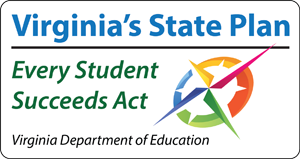 by James C. Sherlock
by James C. Sherlock
“Every student succeeds” is the motto of the state education plan. Let’s take a look and see how this focus on “student success” is playing out in the day-to-day policy judgments of the Board of Education.
This column has reported that the Board of Education, in pursuit of “equity,” is actively reducing the qualifications of teachers for classroom instruction.
This one will explain how Virginia arrived at a passing score for the Praxis Middle School Science Teacher exam that allowed the applicant to get more than half of the questions wrong on the test and still step in front of your child’s classroom.
The Board process made no reference at all to students.
Background. Using one of the most professional review and decision processes you will ever read about, the Educational Testing Service published early last year a report recommending setting the passing score for its Middle School Science teacher qualifying exam.
The Multistate Standard-Setting Technical Report PRAXIS® Middle School Science (5442) Licensure and Credentialing Research published in January of 2020 is summarized as follows
To support the decision-making process of education agencies establishing a passing score (cut score) for the Praxis® Middle School Science (5442) test, research staff from Educational Testing Service (ETS) designed and conducted a multistate standard-setting study.
PARTICIPATING STATES
Panelists from 17 states (including two from Virginia) and Washington, D.C. were recommended by their respective education agencies. The education agencies recommended panelists with (a) experience as either middle school science teachers or college faculty who prepare middle school science teachers and (b) familiarity with the knowledge and skills required of beginning middle school science teachers.RECOMMENDED PASSING SCORE
ETS provides a recommended passing score from the multistate standard-setting study to help education agencies determine an appropriate operational passing score. For the Praxis Middle School Science test, the recommended passing score1 is 61 out of a possible 100 raw-score points. The scale score associated with a raw score of 61 is 152 on a 100–200 scale.
That recommended passing score represented the combined judgments of two panels of experienced educators. The full group included 31 educators representing 17 states and D.C (two were from Virginia nominated by the Department of Education).
Eighteen panelists were teachers, eight were college faculty, one was an administrator or department head, and four held another position. All eight of the faculty members’ job responsibilities included the training of middle school science teachers.
The test measures the knowledge and competencies necessary for a beginning teacher of middle school science.
The two and a half-hour assessment contains 125 multiple-choice items covering four content areas: Nature and Impact of Science and Engineering (approximately 17 items), Physical Science (approximately 38 items), Life Science (approximately 38 items), and Earth and Space Science
The 31 panelists each first took the test. They then were split into two separate panels. Each made two rounds of judgments, the first without discussion among them and the second with discussion. They ranked each question for degree of difficulty for a new science teacher. Then, using those judgements, each panel developed recommended standards for a minimum passing grade. The Round 2 mean score is the panel’s recommended passing score.
The mean of each panel’s judgments were very close, 60.58 and 60.33 respectively. The were rounded up to the next whole number. The scale score (range of 100-200) associated with 61 raw points is 152. So, under that standard, barely above half of the questions answered correctly in that test will qualify a new teacher to start teaching.
Agree with it or not, the process by which they reached that conclusion was extremely professional.
Virginia. In Virginia…
This test will be required for individuals seeking initial licensure unless exempted by holding a full, clear out-of-state license with no deficiencies and can be taken and passed to add an endorsement in Middle Education 6-8 Science by individuals holding a valid renewable teaching license.
Virginia is setting the passing score at a raw score of 57 and a scale score equivalent (scale 100 – 200) of 147
. Why? They were quite honest:
This request supports the Board of Education’s Comprehensive Plan to … increase the number of candidates entering the teaching profession through the testing option for the add-on endorsement.
Increasing the number of science teachers by lowering the passing score. The Board is doing the same for student testing. And school rankings.
As soon as the federal government lets them, progressives will do away with standardized tests to mask the results of their handiwork, reaching a progressive state of perfect happiness — regulations with no accountability.
The Board of Education speaks exclusively for progressive adults. There is not even a reference to the educational needs of children in such deliberations.
Who speaks for the children? The Board of Education certainly won’t. Whoever does needs to step up.

Leave a Reply
You must be logged in to post a comment.